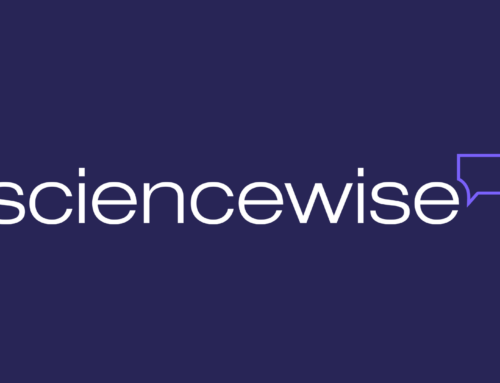Author: Hannah Rutter – Deputy Director,
Digital identities let people prove things about themselves, such as their age or address, without the need to present physical documents. My team in the Department for Science, Innovation and Technology is working to enable the widespread use of trusted digital identity services across the economy, by creating a framework of standards, governance and legislation.
Last year, we co-commissioned a public dialogue with Sciencewise on trust in digital identity services because we wanted to better understand the public’s views on important issues around digital identity. This blog covers some of my reflections on the dialogue and its impact.
The dialogue allowed us to fill an evidence gap by gathering informed views directly from the public.
As a team, we have previously heard from members of the public through our 2019 Call for Evidence and our 2021 pre-legislative consultation, but respondents to these formal documents tend to be people who already have a strong interest in digital identity. Digital identity policy has the potential to affect anyone’s day to day life, so it’s essential to hear a diverse range of perspectives.
The public dialogue provided a fantastic way to gather in-depth insights from nearly 100 participants who were broadly representative of the UK population.
The dialogue process built up participants’ understanding of digital identities, with product demonstrations, talks from industry experts, and testimony from people from marginalised groups.
This context setting, combined with the deliberative dialogue, allowed participants’ views to evolve over the five workshops as their understanding and engagement grew. Many participants felt more positively towards digital identities by the end of the dialogue, while still being able to share nuanced perspectives on areas of concern. Dialogue participants also moved from predominantly considering their own personal needs to considering the potential impacts on society as a whole. Throughout the programme, participants particularly focused on how we can articulate the benefits of, and build trust in digital identities, both of which are core to my team’s purpose.
The evidence gathered from the dialogue has had wide-ranging impacts on our policy development.
We’ve learnt directly from dialogue findings and been able to incorporate these new insights on public attitudes into our ongoing policy work in key areas. In particular, the dialogue has been really helpful in informing the development of the next version of digital identity standards – the UK digital identity and attributes trust framework. It has also been instrumental in refining plans for the governance function we’re establishing here in DSIT, the Office for Digital Identities and Attributes (OfDIA).
Dialogue participants were particularly interested in data control, inclusion and complaints. They were clear that they expect the government to put in place appropriate safeguards for users, and that there should be transparency and accountability across the digital identity ecosystem. Dialogue participants also emphasised the importance of inclusion, and enabling a digital identity ecosystem that works for all – individuals and businesses alike.
We absolutely recognise these priorities, and we’re working hard to embed them in our policy development. Beyond these immediate impacts, the dialogue forms a key part of our evidence base, shaping future policy options and the trade-offs to be made.
The public dialogue has had a trust building effect, separate to the impact of the evidence it produced.
Dialogue participants also felt that DSIT’s investment in the dialogue showed that we are listening, and not treating public engagement as a tick box exercise.
Similarly, the reaction from our stakeholders has been overwhelmingly positive. My team recently held a virtual event to summarise dialogue findings for stakeholders from across industry, civil society and academia, which was attended by around 100 people. Attendees were excited to see DSIT conducting a research project like this, and there were several questions on further value that could be added via future dialogue projects. Providers of digital identity services were particularly interested in how they can respond to findings in the way they develop their products.
The dialogue has helped us to demonstrate that we really are being open and collaborative as we develop policy. This has been invaluable in supporting our work to build trust in digital identities, which is so important for unlocking their benefits across businesses and society.
Written by Hannah Rutter – an experienced civil servant with a track-record of using innovative approaches and new technology to improve public services. Hannah has led the Digital Identity Team for 5 years, using her open and collaborative approach to policy development to drive the widespread use of trusted digital identity services across the UK economy.
Find out more
You can find out more about the dialogue on the project page
You can read the full dialogue report here
You can see the full appendices here





